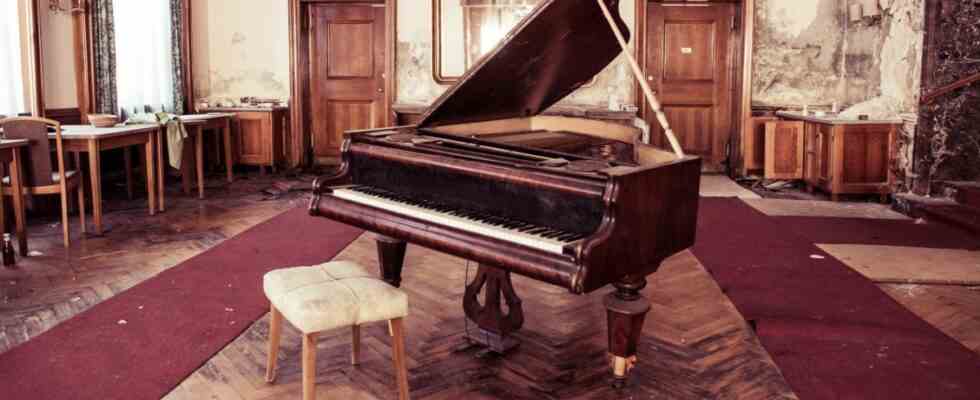At first glance, the novel seems strangely antiquated. Not because of the brand and product names from the eighties and nineties floating around, the youth of the author Verena Roßbacher and her protagonist Charly Benz – this kind of nostalgia is common practice and is used by Roßbacher almost parodically. It is more due to the world situation that the self-discovery odyssey of a 43-year-old woman, who is burdened with complexes but in a good mood, wanders through her everyday life, then flirts with three men at the same time and in the end masters her life as a late mother with tenacity and wit, seems like a faded material from times when escapism still helped.
Above all, the happily spread lifestyle biography of the heroine, who works in the marketing department of a vegan Berlin food company and has been panting closely behind all fashion, culinary and other trends since her school days, exuded a taste of “pre-war literature” despite the ironic break, in the sense of the astonished question: Were such things really relevant, that is, could they be written?
Here, too, the author shines with oblique originality
On the other hand, one has become accustomed to new preludes to the apocalypse every day (it is man’s adaptability that will eventually kill him), and one can still be interested in what “damaged souls” towards the end of the last European The peace phase moved and busied itself. Especially since the Austrian and Berliner-by-choice Verena Roßbacher also shines in her fourth novel with that weird originality that distinguished her debut “Desire for Dragons” from 2009 as well as the two successors “Schwätzen und Schlachten” and “I was a servant in the Hobbs household”.
Especially since, as was to be expected, the story aims deeper than the plot and setting suggest – even down to the sphere of the “ultimate things”, as there are birth and death, humanity and the meaning of life. Yes, love too, but it comes here in the form of friendship and loyalty, apart from the heartfelt, non-cheesy portrayal of the feelings a mother can have for her newborn baby. So the book fits into the time, into every time, because it actually conveys something like consolation, at the risk of being pigeonholed by stricter criticism as humorous feel-good literature.
Verena Roßbacher, born in Vorarlberg in 1979, was highly praised for her previous novel “I was a servant in the Hobbs household”.
(Photo: Kiepenheuer & Witsch / Christian Geyr)
Humour, or rather: a sense of comedy on the verge of sadness, is the foundation of the novel. What a great idea to generate a character like Herbert Schabowski, a 60-year-old civil servant who uses the probably not uncommon syndrome “post anxiety” (i.e. the fear of opening letters, especially those from authorities) who owns the business model “PostEngel “, i.e. taking other people’s letters, opening them together with them and discussing the problems associated with them. Charly’s therapeutic sessions with this life-wise gentleman developed into a deep friendship that had to prove itself when the chain smoker Schabowski received a bad diagnosis.
Meanwhile, a letter from a Viennese law firm, the content of which she feared, turns out to be a pleasant surprise: Charly has heard from her unpredictable father, known as “the Don”, a dusty grand hotel in Bad Gastein inherited. Before that, she met her childhood heartthrob again at a family constellation, a gift from her esoteric sister. And, after being single for a long time, landed two more lovers, so that when she suddenly had high hopes, it was impossible to reconstruct who the father could be with the best will in the world.
Verena Roßbacher: Mon Chéri and our demolished souls. Novel. Verlag Kiepenheuer & Witsch, Cologne 2022. 508 pages, 24 euros.
But that doesn’t matter, because somehow everyone pulls together to form a fairytale-like and yet unsentimental utopia of solidarity, which is repeatedly shaken by funny moments. And Charly grows beyond her late-pubescent self by not only making friends with her pregnancy, but also accompanying Mr. Schabowski through a labyrinth of alternative healing methods that may not save his life, but make it brighter and more hopeful in the final phase than it is the conventional medicine machine could have done. Roßbacher describes this hike on the boundary between reason and spiritual experience with a clever ambivalence that leaves room for the improbable without ignoring reality.
The novel is a piñata of ideas, punchlines and oddities, perhaps a bit too wordy and exuberant for some tastes (or some sensitivities), but completely unmistakable. The prologue entitled “A few words ahead” demonstrates the qualities of the work in miniature format: It is about Peter Handke and his aversion to sex scenes in literature and film, which Verena Roßbacher supports in a wonderfully ambiguous way. Which doesn’t stop her from incorporating three sex scenes into her narrative. They are rather discreet, but get their special effect from the fact that they follow each other pretty directly, with the three men mentioned. It’s clear that Charly loses track of things. Her close soul to her inventor is shown by the fact that she gave her daughter the uncool name “Petra” in homage to the stubborn poet Handke.

